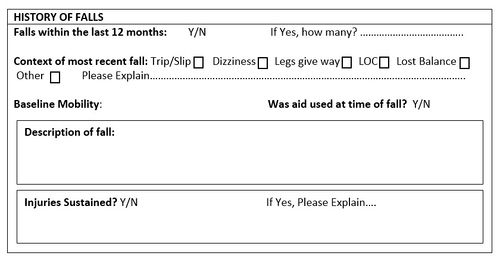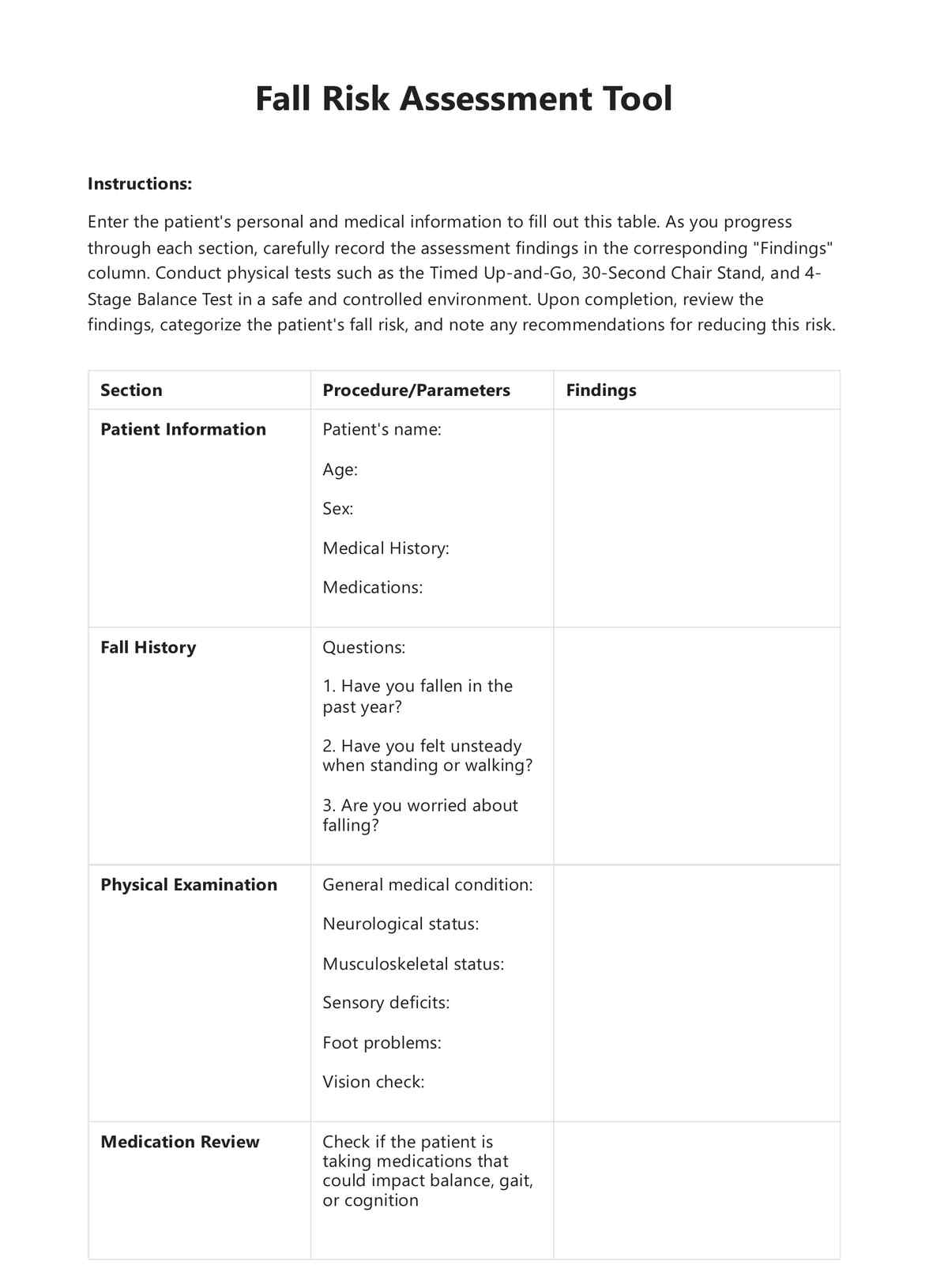The Greatest Guide To Dementia Fall Risk
The Greatest Guide To Dementia Fall Risk
Blog Article
Some Known Incorrect Statements About Dementia Fall Risk
Table of ContentsGetting My Dementia Fall Risk To WorkThe Only Guide to Dementia Fall RiskSome Known Incorrect Statements About Dementia Fall Risk The Only Guide to Dementia Fall RiskThe Main Principles Of Dementia Fall Risk
Based on indications and symptoms, such as evidence of head injury or a brand-new focal neurologic shortage, calculated tomography or MRI of the mind may be shown. An analysis for root causes of syncope must be performed just if there is solid suspicion, as when it comes to frequent, unexplained drops
Doctor utilize a fall threat evaluation to recognize your risk elements for falling and make valuable referrals. Some people try to decrease their loss danger by limiting their activity or striving to be much more mindful. However these well-intentioned habits aren't enough. An autumn threat evaluation is necessary due to the fact that knowing which variables raise your possibilities of falling aids you: Lessen your threat of dropping or harming yourself.
All adults 65 years and older need to have an initial loss threat testing. Have dropped in the previous year. Worry regarding falling.
The 6-Second Trick For Dementia Fall Risk

, and objectives specifically tailored to clients who are at threat for falls. A is defined as an event that results in a person coming image source to relax inadvertently on the ground or floor or various other reduced level (THAT, 2021).
Dropping is the 2nd leading reason of fatality from unintended injuries globally. It is estimated that autumn death rates in the United state
Indicators on Dementia Fall Risk You Should Know
If this price continues, the CDC anticipates 7 autumn fatalities every hour by 2030.
Each year, over 800,000 individuals are hospitalized due to the fact that of drops. Nurses play a significant role in protecting against falls for their individuals with education, reviewing fall threat, producing more secure settings, and providing treatments in protecting against injuries from drops.
Falls are due to numerous factors, and an alternative approach to the private and setting is vital. Suppose a person is taken into consideration at high danger for falls after the testing.
Dementia Fall Risk for Beginners
A calls for using a confirmed tool that researchers have checked out to be useful in calling the reasons for falls in an individual. As an individual's health and wellness and situations adjustment, review is required. The degree of loss threat can be figured out making use of the evaluation of intrinsic and external variables. Criterion assessment devices can additionally be used (reviewed listed below).
Individuals are more probable to drop again if they have actually maintained several falls in the previous check my reference six months. The older populace is at raised risk of fall-related readmissions based upon a research determining the aspects predictive of repeat falls linked outcomes (Prabhakaran et al., navigate here 2020). Persons with damaged understanding and disorientation might not understand where they are or what to do to assist themselves.
The capacity of individuals to safeguard themselves from drops is affected by such factors as age and advancement. Older individuals with weak muscular tissues are extra likely to fall than those who maintain muscle stamina, versatility, and endurance.
Indicators on Dementia Fall Risk You Should Know
Less contrast sensitivity was fairly connected with both enhanced rates of drops and various other injuries, while reduced visual acuity was only related to increased loss price (Timber et al., 2011). Sensory perception of environmental stimuli is paramount to safety and security. Vision and listening to disability limitation the patient's capacity to perceive threats in the environments.
Older adults that have poor balance or trouble strolling are much more likely to drop., or various other clinical conditions and treatments., and usage of psychotropic drugs (Stanmore et al., 2013).
Report this page